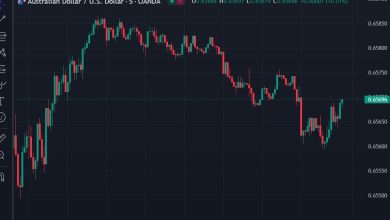Airbnb hosts prepare for an unpredictable summer in the United States
Travelers still choose short-term rentals in large numbers, but there is a glut of places to stay, a legacy of the Airbnb gold rush of recent years.
As summer 2024 approaches, hosts face pressure to stand out from all the other listings in their area. Adding additional stress is the increased unpredictability of travelers themselves: Hosts say guests are booking trips more at the last minute than with pre-planning in years past.
As recently as March, listings on Airbnb and Vrbo totaled 1.57 million across the country, an increase of 12.3% from the same period last year, according to the site AirDNA analysis. Average guest occupancy, or the number of nights booked each month, improved slightly by 2% from last year, although March 2023 represents a 4% decline from 2022.
To protect their margins, hosts are turning to different strategies to generate returns.
Some hosts are turning to social media to attract summer guests, hiring local influencers to create video reviews of their properties and trading free getaways for promotional photos. Meanwhile, professional hosts, which AirDNA defines as anyone with more than 20 listings, are looking to leverage their brands and workforce to book directly with guests, bypassing the fees associated with major platforms.
“If I could, I would want them to all be direct bookings,” said Emily Burke, a host who manages 40 listings in Tulsa, Oklahoma.
Big hosts are turning to direct booking, but it comes with risks
Direct booking is when a guest books their stay on a property’s personal website rather than through a major platform like Airbnb, Vrbo and others.
Arizona host Rick Kenworthy, who manages 91 listings in the Scottsdale area, near Phoenix, said he has made direct booking a priority.
Kenworthy said he increased the percentage of direct bookings to 25% in the first quarter of 2024, up from 10% in the same period last year, which he said translates to $500,000 more . In income. Kenworthy offers a 5% discount if guests book direct, bringing a $350-a-night stay down to $330.
The proposition of direct bookings is that both parties save on fees, creating a lower price per night for guests and allowing hosts to keep all of the revenue.
Kenworthy’s strategy was twofold. First, he tripled his property management company’s email delivery list using Wi-Fi capture technology that stores emails when guests log in during their stay. It then emails special offers with links to the direct booking site. Second, he invested in branded items like coffee mugs and pens that fill each of his properties, hoping to gain familiarity with customers.
“We don’t force-feed anyone,” he told Business Insider. “But at the end of the day, it comes down to dollars and cents.”
For some hosts, however, the prospect of going it alone is too daunting. They may be hesitant to move away from Airbnb, Vrbo, Expedia and others, both because of the insurance protection offered by these sites and the visibility offered by their large pool of customers. travel-loving users.
Ryan Villines, a host from Missouri and volunteers for Airbnb as a community leader in his area, believes the risk of booking direct is greater than the reward.
With direct bookings, hosts are responsible for collecting the proper documentation for background checks and payment information, and they don’t benefit from the additional insurance offered by major platforms.
“If something goes wrong or someone sets your house on fire, there is some protection,” said Villines, who manages four properties near the popular vacation destination. Lake of the Ozarks. “If you make a direct reservation, it’s very risky.”
Hosts are turning to influencers to tour their properties on social media
Burke, the host with 40 listings in Tulsa, said guests are turning to last-minute stays, which is stressful for hosts who rely on their business.
Burke predicts it will end May with about 58% occupancy, but just a few weeks ago it was only booked for 30% of May nights.
In an effort to attract more bookings overall, she began working with a local influencer with 50,000 followers. So far, they’ve already filmed one of Burke’s short-term rental properties near the popular Tulsa park known as Gathering Place and plan to film another near a “trendy shopping district ” known as Cherry Street.
“The two are location, location, location. So people know they can stay in really cool areas and beautiful properties through our company,” Burke said.
Burke refused to disclose how much she pays the influencer to feature her properties, but said comparable digital marketing services cost $1,000 a month and still require Burke to do a lot of the editing, publishing, and content strategy.
“It’s not my thing,” Burke said. “I’m not a video editor. I don’t have many fans.”
Villines, the host of four Lake of the Ozarks properties, said he has struck deals with influencers, trading free stays in its accommodations for content packages.
Villines said that while he expects his summer 2024 bookings to be down about 10% from last year, he is able to use those unreserved nights for exchanges. content in order to improve its marketing.
He offered content creators who contacted him through Airbnb two- or three-night stays in exchange for up to 50 professional photos that he can use for the property’s Airbnb profile. or a well-composed marketing video that might otherwise cost $500 to $1,500.
“As I’m down, I have more availability for nights that I could trade services,” he said.
Influencers can also help promote direct booking, Burke said.
When the influencer finally posts a link to one of his properties, Burke requests that he direct viewers to his company’s website instead of the Airbnb listing.
Burke said she hopes Tulsans who follow the influencer will be inspired to book through her and save on fees.
“My approach is that it really strives to bring direct-booking guests into our homes,” she said.
businessinsider




